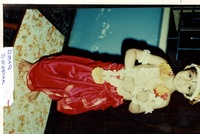-
109_Descants???
???
-
108_LessonsLearned
Complete book with OCR. Publication Date is unknown, just the year.
-
107_LoveHonourRespect
Complete book with OCR.
-
106_Ray_of_Hope
Complete book with OCR.
-
 105_146BoardIllFatedJetHere
105_146BoardIllFatedJetHere Page A6 to A9
-
 104_RelativesBlastVictimsProbeIntoDisaster
104_RelativesBlastVictimsProbeIntoDisaster Page A9
-
 103_OttawaToApologizeToFamilies
103_OttawaToApologizeToFamilies Page A4
-
 102_NotGuiltyOnAllAccounts
102_NotGuiltyOnAllAccounts
-
 101_NewFaceForeignPolicy
101_NewFaceForeignPolicy Page F2
-
 100_MakingSenseCanadianAtrocity
100_MakingSenseCanadianAtrocity Page A16
-
 099_LateInTheDayForAPublicInquiry
099_LateInTheDayForAPublicInquiry Page A11
-
 098_InvestigatorsTraceTrailCluesAcrossOcean
098_InvestigatorsTraceTrailCluesAcrossOcean Page A10
-
 097_CultureChangeNeededAtCSIS
097_CultureChangeNeededAtCSIS Page A5
-
 096_BombingOfFlightRobbedFamiliesOfFuture
096_BombingOfFlightRobbedFamiliesOfFuture
-
 095_AirlinesStillVulnerableToAttack
095_AirlinesStillVulnerableToAttack Page A6
-
 094_AirIndiaSuspectsCharged
094_AirIndiaSuspectsCharged Front Page
-
 093_AirIndiaReport
093_AirIndiaReport Page A6
-
 092_WeAreSorry
092_WeAreSorry
-
 091_VictimsFamiliesKeenlyAnticipatingPrimeMinistersWords
091_VictimsFamiliesKeenlyAnticipatingPrimeMinistersWords
-
 090_LetterToEditor
090_LetterToEditor
-
 089_IndiasPMWillVisitMemorial
089_IndiasPMWillVisitMemorial
-
 088_HarperApologizeAirIndiaFamiliesMemorial
088_HarperApologizeAirIndiaFamiliesMemorial
-
 087_AirIndia
087_AirIndia
-
 086_ACanadianAtrocity
086_ACanadianAtrocity
-
 085_TragicLessonsAirIndia
085_TragicLessonsAirIndia
-
 084_SinghMeetsAirIndiaFamilies
084_SinghMeetsAirIndiaFamilies
-
 083_NoOfferRelativesAirIndiaVictims
083_NoOfferRelativesAirIndiaVictims
-
 082_MemorialBringsPeaceToKin
082_MemorialBringsPeaceToKin
-
 081_InquiryVindicatesSecurityDirector
081_InquiryVindicatesSecurityDirector
-
 080_GovtReleasesAirIndiaActionPlan
080_GovtReleasesAirIndiaActionPlan
-
 079_Finally
079_Finally
-
 078_FiguringCompansationFamilies
078_FiguringCompansationFamilies
-
 077_LargestMassMurderCanadianHistory
077_LargestMassMurderCanadianHistory
-
 076_DamningIndictmentBrokenSystem
076_DamningIndictmentBrokenSystem
-
 075_HarperSpeechMemorialToronto
075_HarperSpeechMemorialToronto
-
 074_AirIndiaApology
074_AirIndiaApology
-
 073_ChargesBringReliefToAirIndiaFamilies
073_ChargesBringReliefToAirIndiaFamilies
-
 072_BittersweetDayForFamilies
072_BittersweetDayForFamilies
-
 071_ChargesOkdInAirIndiaCase
071_ChargesOkdInAirIndiaCase
-
 070_HarperApologizesAirIndiaBombingPart2
070_HarperApologizesAirIndiaBombingPart2
-
 069_HarperApologizesAirIndiaBombingPart1
069_HarperApologizesAirIndiaBombingPart1
-
 068_AirIndiaReport
068_AirIndiaReport
-
 067_AirIndiaAnniversaryApology
067_AirIndiaAnniversaryApology
-
 066_PaulMartinAttendIreland
066_PaulMartinAttendIreland
-
 065_AirIndiaBombClearForLoading
065_AirIndiaBombClearForLoading
-
 064_PlaneLeftBeforeSearch
064_PlaneLeftBeforeSearch
-
 063_NotGuiltyNationalPost
063_NotGuiltyNationalPost
-
 062_McLellanRejectsCallForProbe
062_McLellanRejectsCallForProbe
-
 061_ChronologyAirIndia
061_ChronologyAirIndia
-
 060_SuspectUnableToWearTurbant
060_SuspectUnableToWearTurbant
-
 059_PoliceFreeAirIndiaSuspect
059_PoliceFreeAirIndiaSuspect
-
 058_ErasedTapesKeyToPlot
058_ErasedTapesKeyToPlot
-
 057_FormerProsecutorFrustrationErasedTapes
057_FormerProsecutorFrustrationErasedTapes
-
 056_RaeOptionsAirIndiaCase
056_RaeOptionsAirIndiaCase
-
 055_RaeAdviseOttawaAirIndiaInquiry
055_RaeAdviseOttawaAirIndiaInquiry
-
 054_CSISErasureOfTapesIncompetence
054_CSISErasureOfTapesIncompetence
-
 053_RCMPJeopardizedKeyInformant
053_RCMPJeopardizedKeyInformant
-
 052_IntelligenceGatheringBetweenCracks
052_IntelligenceGatheringBetweenCracks
-
 051_JudgeLastWord
051_JudgeLastWord
-
 050_FailureToTreatTipSeriously
050_FailureToTreatTipSeriously
-
 049_CanadaToldAir-IndiaTargetEx-Spy
049_CanadaToldAir-IndiaTargetEx-Spy
-
 048_BigScarHeart
048_BigScarHeart
-
 047_AfterAllTheseYearsHorribleLimbo
047_AfterAllTheseYearsHorribleLimbo
-
 046_India-Worldwide-1
046_India-Worldwide-1 India Worldwide Magazine, Vol. 1, No. 8, March 1988, Painful Scars of 'Kanishka' Remain in Canada; Cover, pp. 3, 7-11
-
 045_Frontline-Magazine
045_Frontline-Magazine Frontline, Vol. 2, N 13.
-
 044_Turlapati-Diary
044_Turlapati-Diary Diary entries written by both Deepak and Sanjay Turlapati, combined with news articles/document scans outlining Air India Flight 182 tragedy
-
 043_Toronto-June-1986
043_Toronto-June-1986 Toronto Magazine, June 1986 edition, Cover, pp. 2, 3, 52-57
-
 042_TearsAngerGreetAirIndiaVerdict-Page5
042_TearsAngerGreetAirIndiaVerdict-Page5
-
 041_TearsAngerGreetAirIndiaVerdict-IndiaJournalHeadline
041_TearsAngerGreetAirIndiaVerdict-IndiaJournalHeadline
-
 040_IndiaOutragedOverVerdict-Page19
040_IndiaOutragedOverVerdict-Page19
-
 039_BagriAndMalikFoundNotGuilty-CanIndiaHeadline
039_BagriAndMalikFoundNotGuilty-CanIndiaHeadline
-
 038_AirIndiaVeredictStuntsCommunity-TheVoiceHeadline
038_AirIndiaVeredictStuntsCommunity-TheVoiceHeadline
-
 037_20YearsAfterKanishkaBothAccusedNotGuilty-IndiaExpressPage10
037_20YearsAfterKanishkaBothAccusedNotGuilty-IndiaExpressPage10
-
 036_10thAnniversaryInterdenominationalServiceReflection
036_10thAnniversaryInterdenominationalServiceReflection
-
 035_10thAnniversaryInterdenominationalServiceBrochure
035_10thAnniversaryInterdenominationalServiceBrochure
-
 034_KrishnaBhat-FamilyAlbum
034_KrishnaBhat-FamilyAlbum Photo of Deepak (in white and red sweater)
-
 033_KrishnaBhat-FamilyAlbum
033_KrishnaBhat-FamilyAlbum Photo of Deepak (in white)
-
 032_KrishnaBhat-FamilyAlbum
032_KrishnaBhat-FamilyAlbum Photo of Muktha (in red)
-
 031_KrishnaBhat-FamilyAlbum
031_KrishnaBhat-FamilyAlbum Photo of Deepak (in red)
-
 030_KrishnaBhat-FamilyAlbum
030_KrishnaBhat-FamilyAlbum Photo of Deepak (in blue)
-
 029_KrishnaBhat-FamilyAlbum
029_KrishnaBhat-FamilyAlbum Photo of Muktha (in black)
-
 028_KrishnaBhat-FamilyAlbum
028_KrishnaBhat-FamilyAlbum Photo of Krishna and Muktha
-
 027_KrishnaBhat-FamilyAlbum
027_KrishnaBhat-FamilyAlbum Photo of Deepak and Muktha (in front of house)
-
 026_KrishnaBhat-FamilyAlbum
026_KrishnaBhat-FamilyAlbum Photo of envelope
-
 025_WhereIsJusticeAIVFAStatement
025_WhereIsJusticeAIVFAStatement Public Statement from the Air India 182 Victims Families Association
-
 024_LeaderOfTheOppositionLetter
024_LeaderOfTheOppositionLetter Letter from the leader of the Liberal Party, John Turner, to Rattan Singh Kalsi
-
 023_NPBDetentionReviewDecisionSheet
023_NPBDetentionReviewDecisionSheet Letter from National Parole Board regarding federal offender Inderjit Singh Reyat
-
 022_LataPadaStatementForStage1AirIndiaInquiry
022_LataPadaStatementForStage1AirIndiaInquiry Lata Pada's Statement for Stage 1 of the Air India Inquiry
-
 021_AdmissionOfFactEXH7-40
021_AdmissionOfFactEXH7-40 Government Document Re: Chapter 7: Narwal Family Vehicles
-
 020_AdmissionOfFactEXH7-41
020_AdmissionOfFactEXH7-41 Slightly redacted Government Document (B.C.)
-
 019_AdmissionOfFact-RE-Chapter9-EXH9-1
019_AdmissionOfFact-RE-Chapter9-EXH9-1 Heavily redacted Government Document (B.C.)
-
 018_BalGupta-StatementOnStage1
018_BalGupta-StatementOnStage1 Personal Statement in Stage 1 Commission of Inquiry into the Investigation of the Bombing of Air India Flight 182
-
 017_PublicStatementFromTheAirIndiaFlight182VictimsFamiliesAssociation
017_PublicStatementFromTheAirIndiaFlight182VictimsFamiliesAssociation Public Statement
-
 016_RattanSinghKalsi-LovedOneLost-IndiraKalsi
016_RattanSinghKalsi-LovedOneLost-IndiraKalsi Personal Statement for Air India Flight 182 Inquiry
-
 015_SpeechDrPadminiTurlapati20Anniversary
015_SpeechDrPadminiTurlapati20Anniversary Speech by Dr. Padmini Turlapati at 20th Anniversary Commemorative Service of Flight 182 Air India (Kanishka) crash on June 23, 2005 at Ahakista, Cork County, Ireland
-
 014_TheCaseForAPublicInquiry
014_TheCaseForAPublicInquiry Opinion Piece
-
 013_Prime-Minister-Release-01
013_Prime-Minister-Release-01 Prime Minister Harper appoints inquiry into Air India Bombing
-
 012_October-Court-Update-and-Proceedings-02
012_October-Court-Update-and-Proceedings-02 Air India Newsletter - Court Update and Proceedings
-
 011_Commission-Communiqué-Information-for-Families-of-the-Victims-French-02
011_Commission-Communiqué-Information-for-Families-of-the-Victims-French-02 Information for families of the victim - Commision of inquiry into the investigation of the bombing of Air India Flight 183
-
 010_Commission-Communiqué-Information-for-Families-of-the-Victims-English-01
010_Commission-Communiqué-Information-for-Families-of-the-Victims-English-01 Information for families of the victim - Commision of inquiry into the investigation of the bombing of Air India Flight 182
 105_146BoardIllFatedJetHere Page A6 to A9
105_146BoardIllFatedJetHere Page A6 to A9 104_RelativesBlastVictimsProbeIntoDisaster Page A9
104_RelativesBlastVictimsProbeIntoDisaster Page A9 103_OttawaToApologizeToFamilies Page A4
103_OttawaToApologizeToFamilies Page A4 102_NotGuiltyOnAllAccounts
102_NotGuiltyOnAllAccounts  101_NewFaceForeignPolicy Page F2
101_NewFaceForeignPolicy Page F2 100_MakingSenseCanadianAtrocity Page A16
100_MakingSenseCanadianAtrocity Page A16 099_LateInTheDayForAPublicInquiry Page A11
099_LateInTheDayForAPublicInquiry Page A11 098_InvestigatorsTraceTrailCluesAcrossOcean Page A10
098_InvestigatorsTraceTrailCluesAcrossOcean Page A10 097_CultureChangeNeededAtCSIS Page A5
097_CultureChangeNeededAtCSIS Page A5 096_BombingOfFlightRobbedFamiliesOfFuture
096_BombingOfFlightRobbedFamiliesOfFuture  095_AirlinesStillVulnerableToAttack Page A6
095_AirlinesStillVulnerableToAttack Page A6 094_AirIndiaSuspectsCharged Front Page
094_AirIndiaSuspectsCharged Front Page 093_AirIndiaReport Page A6
093_AirIndiaReport Page A6 092_WeAreSorry
092_WeAreSorry  091_VictimsFamiliesKeenlyAnticipatingPrimeMinistersWords
091_VictimsFamiliesKeenlyAnticipatingPrimeMinistersWords  090_LetterToEditor
090_LetterToEditor  089_IndiasPMWillVisitMemorial
089_IndiasPMWillVisitMemorial  088_HarperApologizeAirIndiaFamiliesMemorial
088_HarperApologizeAirIndiaFamiliesMemorial  087_AirIndia
087_AirIndia  086_ACanadianAtrocity
086_ACanadianAtrocity  085_TragicLessonsAirIndia
085_TragicLessonsAirIndia  084_SinghMeetsAirIndiaFamilies
084_SinghMeetsAirIndiaFamilies  083_NoOfferRelativesAirIndiaVictims
083_NoOfferRelativesAirIndiaVictims  082_MemorialBringsPeaceToKin
082_MemorialBringsPeaceToKin  081_InquiryVindicatesSecurityDirector
081_InquiryVindicatesSecurityDirector  080_GovtReleasesAirIndiaActionPlan
080_GovtReleasesAirIndiaActionPlan  079_Finally
079_Finally  078_FiguringCompansationFamilies
078_FiguringCompansationFamilies  077_LargestMassMurderCanadianHistory
077_LargestMassMurderCanadianHistory  076_DamningIndictmentBrokenSystem
076_DamningIndictmentBrokenSystem  075_HarperSpeechMemorialToronto
075_HarperSpeechMemorialToronto  074_AirIndiaApology
074_AirIndiaApology  073_ChargesBringReliefToAirIndiaFamilies
073_ChargesBringReliefToAirIndiaFamilies  072_BittersweetDayForFamilies
072_BittersweetDayForFamilies  071_ChargesOkdInAirIndiaCase
071_ChargesOkdInAirIndiaCase  070_HarperApologizesAirIndiaBombingPart2
070_HarperApologizesAirIndiaBombingPart2  069_HarperApologizesAirIndiaBombingPart1
069_HarperApologizesAirIndiaBombingPart1  068_AirIndiaReport
068_AirIndiaReport  067_AirIndiaAnniversaryApology
067_AirIndiaAnniversaryApology  066_PaulMartinAttendIreland
066_PaulMartinAttendIreland  065_AirIndiaBombClearForLoading
065_AirIndiaBombClearForLoading  064_PlaneLeftBeforeSearch
064_PlaneLeftBeforeSearch  063_NotGuiltyNationalPost
063_NotGuiltyNationalPost  062_McLellanRejectsCallForProbe
062_McLellanRejectsCallForProbe  061_ChronologyAirIndia
061_ChronologyAirIndia  060_SuspectUnableToWearTurbant
060_SuspectUnableToWearTurbant  059_PoliceFreeAirIndiaSuspect
059_PoliceFreeAirIndiaSuspect  058_ErasedTapesKeyToPlot
058_ErasedTapesKeyToPlot  057_FormerProsecutorFrustrationErasedTapes
057_FormerProsecutorFrustrationErasedTapes  056_RaeOptionsAirIndiaCase
056_RaeOptionsAirIndiaCase  055_RaeAdviseOttawaAirIndiaInquiry
055_RaeAdviseOttawaAirIndiaInquiry  054_CSISErasureOfTapesIncompetence
054_CSISErasureOfTapesIncompetence  053_RCMPJeopardizedKeyInformant
053_RCMPJeopardizedKeyInformant  052_IntelligenceGatheringBetweenCracks
052_IntelligenceGatheringBetweenCracks  051_JudgeLastWord
051_JudgeLastWord  050_FailureToTreatTipSeriously
050_FailureToTreatTipSeriously  049_CanadaToldAir-IndiaTargetEx-Spy
049_CanadaToldAir-IndiaTargetEx-Spy  048_BigScarHeart
048_BigScarHeart  047_AfterAllTheseYearsHorribleLimbo
047_AfterAllTheseYearsHorribleLimbo  046_India-Worldwide-1 India Worldwide Magazine, Vol. 1, No. 8, March 1988, Painful Scars of 'Kanishka' Remain in Canada; Cover, pp. 3, 7-11
046_India-Worldwide-1 India Worldwide Magazine, Vol. 1, No. 8, March 1988, Painful Scars of 'Kanishka' Remain in Canada; Cover, pp. 3, 7-11 045_Frontline-Magazine Frontline, Vol. 2, N 13.
045_Frontline-Magazine Frontline, Vol. 2, N 13. 044_Turlapati-Diary Diary entries written by both Deepak and Sanjay Turlapati, combined with news articles/document scans outlining Air India Flight 182 tragedy
044_Turlapati-Diary Diary entries written by both Deepak and Sanjay Turlapati, combined with news articles/document scans outlining Air India Flight 182 tragedy 043_Toronto-June-1986 Toronto Magazine, June 1986 edition, Cover, pp. 2, 3, 52-57
043_Toronto-June-1986 Toronto Magazine, June 1986 edition, Cover, pp. 2, 3, 52-57 042_TearsAngerGreetAirIndiaVerdict-Page5
042_TearsAngerGreetAirIndiaVerdict-Page5  041_TearsAngerGreetAirIndiaVerdict-IndiaJournalHeadline
041_TearsAngerGreetAirIndiaVerdict-IndiaJournalHeadline  040_IndiaOutragedOverVerdict-Page19
040_IndiaOutragedOverVerdict-Page19  039_BagriAndMalikFoundNotGuilty-CanIndiaHeadline
039_BagriAndMalikFoundNotGuilty-CanIndiaHeadline  038_AirIndiaVeredictStuntsCommunity-TheVoiceHeadline
038_AirIndiaVeredictStuntsCommunity-TheVoiceHeadline  037_20YearsAfterKanishkaBothAccusedNotGuilty-IndiaExpressPage10
037_20YearsAfterKanishkaBothAccusedNotGuilty-IndiaExpressPage10  036_10thAnniversaryInterdenominationalServiceReflection
036_10thAnniversaryInterdenominationalServiceReflection  035_10thAnniversaryInterdenominationalServiceBrochure
035_10thAnniversaryInterdenominationalServiceBrochure  034_KrishnaBhat-FamilyAlbum Photo of Deepak (in white and red sweater)
034_KrishnaBhat-FamilyAlbum Photo of Deepak (in white and red sweater) 033_KrishnaBhat-FamilyAlbum Photo of Deepak (in white)
033_KrishnaBhat-FamilyAlbum Photo of Deepak (in white) 032_KrishnaBhat-FamilyAlbum Photo of Muktha (in red)
032_KrishnaBhat-FamilyAlbum Photo of Muktha (in red) 031_KrishnaBhat-FamilyAlbum Photo of Deepak (in red)
031_KrishnaBhat-FamilyAlbum Photo of Deepak (in red) 030_KrishnaBhat-FamilyAlbum Photo of Deepak (in blue)
030_KrishnaBhat-FamilyAlbum Photo of Deepak (in blue) 029_KrishnaBhat-FamilyAlbum Photo of Muktha (in black)
029_KrishnaBhat-FamilyAlbum Photo of Muktha (in black) 028_KrishnaBhat-FamilyAlbum Photo of Krishna and Muktha
028_KrishnaBhat-FamilyAlbum Photo of Krishna and Muktha 027_KrishnaBhat-FamilyAlbum Photo of Deepak and Muktha (in front of house)
027_KrishnaBhat-FamilyAlbum Photo of Deepak and Muktha (in front of house) 026_KrishnaBhat-FamilyAlbum Photo of envelope
026_KrishnaBhat-FamilyAlbum Photo of envelope 025_WhereIsJusticeAIVFAStatement Public Statement from the Air India 182 Victims Families Association
025_WhereIsJusticeAIVFAStatement Public Statement from the Air India 182 Victims Families Association 024_LeaderOfTheOppositionLetter Letter from the leader of the Liberal Party, John Turner, to Rattan Singh Kalsi
024_LeaderOfTheOppositionLetter Letter from the leader of the Liberal Party, John Turner, to Rattan Singh Kalsi 023_NPBDetentionReviewDecisionSheet Letter from National Parole Board regarding federal offender Inderjit Singh Reyat
023_NPBDetentionReviewDecisionSheet Letter from National Parole Board regarding federal offender Inderjit Singh Reyat 022_LataPadaStatementForStage1AirIndiaInquiry Lata Pada's Statement for Stage 1 of the Air India Inquiry
022_LataPadaStatementForStage1AirIndiaInquiry Lata Pada's Statement for Stage 1 of the Air India Inquiry 021_AdmissionOfFactEXH7-40 Government Document Re: Chapter 7: Narwal Family Vehicles
021_AdmissionOfFactEXH7-40 Government Document Re: Chapter 7: Narwal Family Vehicles 020_AdmissionOfFactEXH7-41 Slightly redacted Government Document (B.C.)
020_AdmissionOfFactEXH7-41 Slightly redacted Government Document (B.C.) 019_AdmissionOfFact-RE-Chapter9-EXH9-1 Heavily redacted Government Document (B.C.)
019_AdmissionOfFact-RE-Chapter9-EXH9-1 Heavily redacted Government Document (B.C.) 018_BalGupta-StatementOnStage1 Personal Statement in Stage 1 Commission of Inquiry into the Investigation of the Bombing of Air India Flight 182
018_BalGupta-StatementOnStage1 Personal Statement in Stage 1 Commission of Inquiry into the Investigation of the Bombing of Air India Flight 182 017_PublicStatementFromTheAirIndiaFlight182VictimsFamiliesAssociation Public Statement
017_PublicStatementFromTheAirIndiaFlight182VictimsFamiliesAssociation Public Statement 016_RattanSinghKalsi-LovedOneLost-IndiraKalsi Personal Statement for Air India Flight 182 Inquiry
016_RattanSinghKalsi-LovedOneLost-IndiraKalsi Personal Statement for Air India Flight 182 Inquiry 015_SpeechDrPadminiTurlapati20Anniversary Speech by Dr. Padmini Turlapati at 20th Anniversary Commemorative Service of Flight 182 Air India (Kanishka) crash on June 23, 2005 at Ahakista, Cork County, Ireland
015_SpeechDrPadminiTurlapati20Anniversary Speech by Dr. Padmini Turlapati at 20th Anniversary Commemorative Service of Flight 182 Air India (Kanishka) crash on June 23, 2005 at Ahakista, Cork County, Ireland 014_TheCaseForAPublicInquiry Opinion Piece
014_TheCaseForAPublicInquiry Opinion Piece 013_Prime-Minister-Release-01 Prime Minister Harper appoints inquiry into Air India Bombing
013_Prime-Minister-Release-01 Prime Minister Harper appoints inquiry into Air India Bombing 012_October-Court-Update-and-Proceedings-02 Air India Newsletter - Court Update and Proceedings
012_October-Court-Update-and-Proceedings-02 Air India Newsletter - Court Update and Proceedings 011_Commission-Communiqué-Information-for-Families-of-the-Victims-French-02 Information for families of the victim - Commision of inquiry into the investigation of the bombing of Air India Flight 183
011_Commission-Communiqué-Information-for-Families-of-the-Victims-French-02 Information for families of the victim - Commision of inquiry into the investigation of the bombing of Air India Flight 183 010_Commission-Communiqué-Information-for-Families-of-the-Victims-English-01 Information for families of the victim - Commision of inquiry into the investigation of the bombing of Air India Flight 182
010_Commission-Communiqué-Information-for-Families-of-the-Victims-English-01 Information for families of the victim - Commision of inquiry into the investigation of the bombing of Air India Flight 182